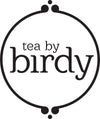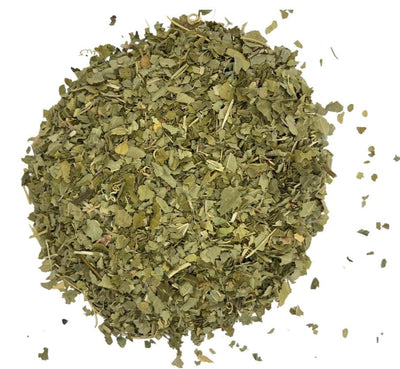Motherhood & Organic Tea Blends
From the moment your eyes capture the sight of the chemical dipstick showing two lines signalling the uprise of the HCG levels; the emotions come hurling in. They come in hard, and they come in fast. For some, it’s been a quick and relatively stress-free process so far, but for others, it resembles more like the first drops of rain after a drought. It’s been so dry and dim, that even after these first drops of rain, nothing seems to get wet. They’re too nervous and apprehensive to even crack a smile in fear that it can’t be long-lasting. Yet that second pink line develops; every second it boldens, the emotions strengthen. The magical journey of motherhood is about to begin.


Reaching the third trimester is like hitting the narrow end of the racetrack; you are finally on the home stretch. In thirteen or fewer weeks, your child will be earthside and you will finally have the opportunity to lock eyes with your magical creation. But before those precious first moments occur, the third trimester is not without its obstacles- the heartburn increases, as does the backaches. From 32 weeks onwards, the Pregnancy Tea from Tea by Birdy can help aid with some of those third-trimester discomforts. This Naturopath designed blend contains organic raspberry leaf, nettle, alfalfa, rosehip, and spearmint. It was designed to help strengthen uterine muscles and the pelvic floor to help with birth delivery and recovery. Rosehip is known to help with the body’s absorption of iron, a crucial mineral for both mother and foetus. Alfalfa has been shown to help increase milk supply.

An unknown, but clever person once said, “A baby fills a place in your heart, that you never knew existed.” As soon as you have that tiny, precious baby in your hands, those words will take on a new meaning. New emotions, thoughts and feelings will fill your mind, but unconditional love fills the heart. The fourth trimester has now begun, and so does the soreness, cramping and healing of wounds. A time when your body craves extra vitamins and minerals to heal. For many, the breastfeeding journey will also begin- which can often be challenging. Tea by Birdy has a Nursing Mumma blend to help with some of those challenges.

Goat’s rue is a natural galactagogue, that stimulates breast milk supply which can be found in the Tea by Birdy Nursing Mumma Blend. Nettle leaf is also present in this mix specifically created for mothers after birth, which has also been shown to improve milk supply and remove excess waste from the kidneys. Fenugreek is another key ingredient in this blend, which is well known for increasing milk supply in lactating women and regulating blood sugar levels. Although fenugreek has long been a popular and effective galactagogue, this clover-like herb isn't suitable for everyone. Women who have diabetes should avoid fenugreek as it can affect blood sugar levels. Women who experience digestive issues or have sensitivities to legumes should also avoid fenugreek.
Herbal Tea to Avoid During Pregnancy
Herbal teas have been consumed for centuries for their various health benefits, but it's essential to exercise caution when using them during pregnancy. While some herbal teas can be soothing and even beneficial for expectant mothers, others can pose potential risks to both the mother and the developing foetus. Below is a list of some herbal teas that should generally be avoided during pregnancy to ensure the safety of the mother and baby.
-
Chamomile Tea: Chamomile tea is a popular herbal remedy known for its calming and soothing properties. However, it contains compounds that may stimulate uterine contractions, potentially leading to a risk of miscarriage. While the evidence is not definitive, it's wise for pregnant women to avoid chamomile tea or consume it in moderation.
-
Pennyroyal Tea: Pennyroyal is an herb that has been traditionally used to induce menstruation and, in some cases, abortion. Consuming pennyroyal tea during pregnancy can be extremely dangerous, as it may lead to miscarriage or other severe complications. It is crucial to steer clear of pennyroyal tea entirely during pregnancy.
-
Tansy Tea: Tansy is another herb with emmenagogue properties, which means it can stimulate menstrual flow and uterine contractions. Drinking tansy tea while pregnant may increase the risk of miscarriage and should be avoided.
-
Sage Tea: Sage is known for its culinary uses and potential health benefits. However, it contains thujone, a compound that can be toxic in large amounts. Drinking excessive amounts of sage tea during pregnancy may harm the developing foetus. It's best to use sage sparingly in cooking and avoid sage tea altogether.
-
Black and Blue Cohosh Tea: Black and blue cohosh are traditional herbal remedies used to induce labour. These teas should be strictly avoided during pregnancy as they can cause uterine contractions, potentially leading to premature birth or other complications.
-
Dong Quai Tea: Dong quai is an herb commonly used in traditional Chinese medicine for its potential benefits on the female reproductive system. However, it is best avoided during pregnancy as it can also stimulate uterine contractions and may pose a risk to the developing baby.
-
Yarrow Tea: Yarrow is an herb known for its potential medicinal properties, but it can also have uterine-stimulating effects. Pregnant women should exercise caution and avoid yarrow tea, especially in the early stages of pregnancy.
-
Raspberry Leaf Tea: Raspberry leaf tea is a popular remedy believed to help tone the uterine muscles. While it is considered safe for pregnant women during the second and third trimesters, it's advisable to avoid it in the first trimester due to concerns about potential uterine stimulation.
-
Liquorice Root Tea: Liquorice root tea may cause an increase in blood pressure and fluid retention due to its glycyrrhizin content. High blood pressure and fluid retention can be harmful during pregnancy, so it's best to limit or avoid liquorice root tea.
-
Ephedra Tea: Ephedra is an herb that contains ephedrine, a stimulant that can increase blood pressure and heart rate. It is not recommended during pregnancy, as it may pose risks to both the mother and the baby.
In conclusion, although challenging at times, the journey of motherhood is truly a magical one for the discovery of unconditional love for not only your new child but for yourself. A journey full of love, dedication, and sacrifice- that finds a new sense of worth and strength. Our Nausea be Gone, Pregnancy and Nursing Mumma tea's can help you along the way.
While many herbal teas offer potential health benefits, it's crucial for pregnant women to be mindful of the potential risks associated with certain herbal teas. When in doubt, it's advisable to consult with a healthcare provider before consuming any herbal teas during pregnancy to ensure the safety and well-being of both the mother and the developing foetus.







